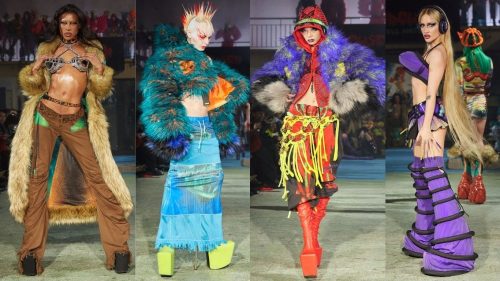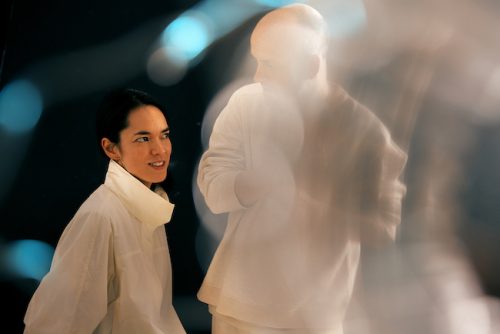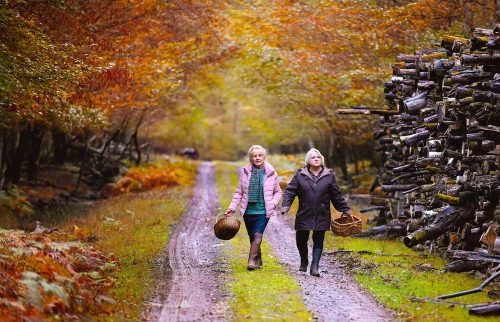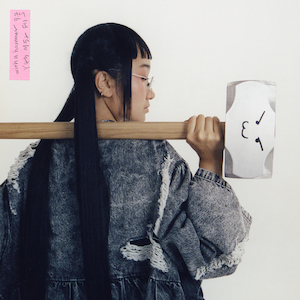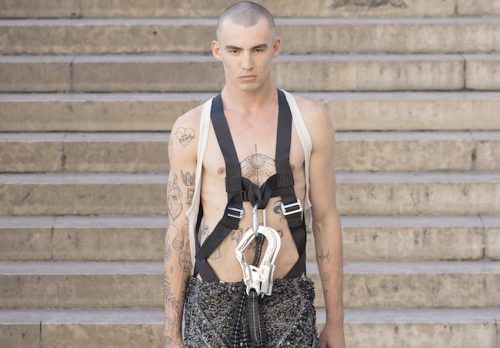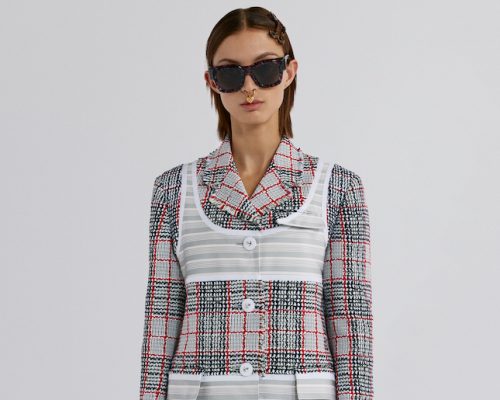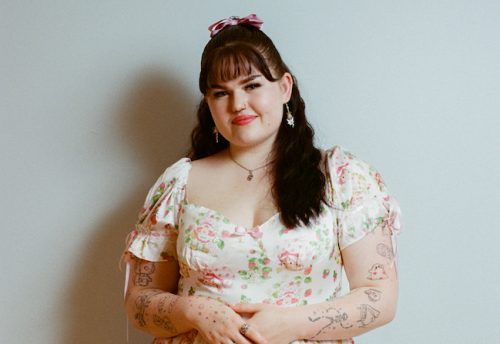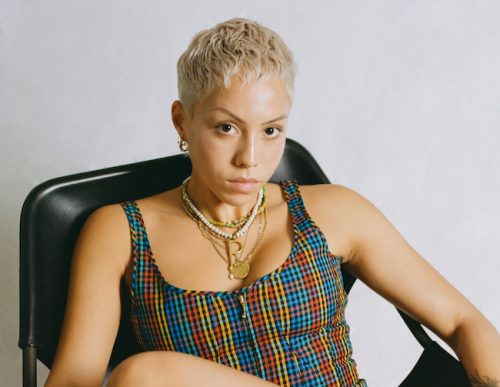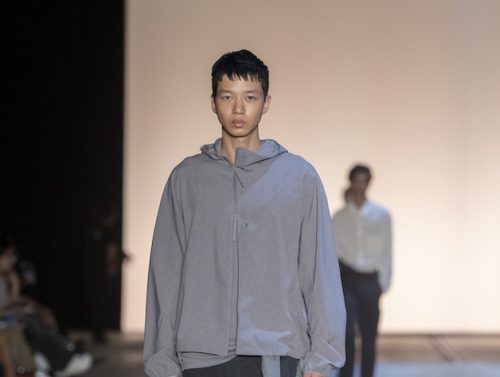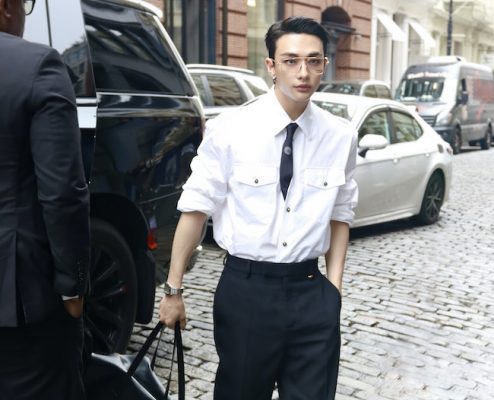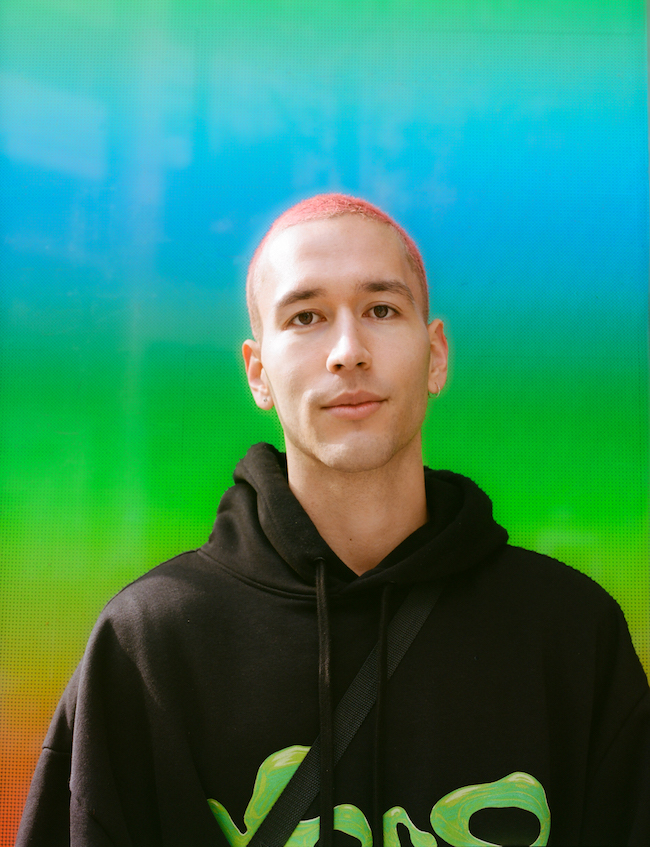
――We would like to start by asking you a little bit about your background. Where are you from in Japan?
rei brown: I’m from Kobe, Japan. That’s where I spent most of my time growing up until I was 18. Then I left for college and went to Berklee College of Music in Boston.
――Are you from a musical family?
rei brown: My parents didn’t work as musicians, but I guess they were always listening to music. And my mom used to play keyboard and piano, so she had a musical background. I think growing up, the influence was just listening to music in the car and stuff. But my mom was also a painter, so there was a lot of art influence in general. My mom would take me to art museums and stuff like that. I think that was actually the big influence that I got from her, from painting and art.
――I love your music because it’s hard to label. What did you grow up listening to?
rei brown: I grew up listening to so many different kinds of music. Early on, I remember my dad playing Green Day or Fatboy Slim in the car, and we also had Queen or Whitney Houston playing in the car a lot. It was such a mixed influence because at school, I would also listen to Dragon Ash or Orange Range or a bunch of random Japanese music. I feel like I just grew up listening to everything. I could find any music that I ever wanted on the Internet. It wasn’t even regional in my mind, I feel like I grew up with the Internet and had access to the world. So it was already kind of borderless and genreless. It was just like, what can I type in and find?
――Why did you decide to go to Berklee?
rei brown: I was definitely singing as a child, but I didn’t take it seriously until middle school. I got a guitar and started taking guitar lessons and writing songs. But the reason I went to Berklee was that there were two senpai at my school who went to Berklee. They were kind of like the cool musicians at my school. I was like, oh, they were good at music and if they went to Berklee, that’s where I should go. I was like, they went there, John Mayer went there [laughs.]
――What did you study there?
rei brown: I majored in songwriting. I wanted to make music and I was putting it up on SoundCloud. So I pretty much just picked my major where my homework would overlap with what I was doing already, which was just making music, making songs and producing them myself.
――What brought you to New York City?
rei brown: I had friends living in New York, so I would always visit from Boston. And when I got to New York, I thought I should be in New York, not Boston. So after a year of graduating, I felt that I needed to move to New York.
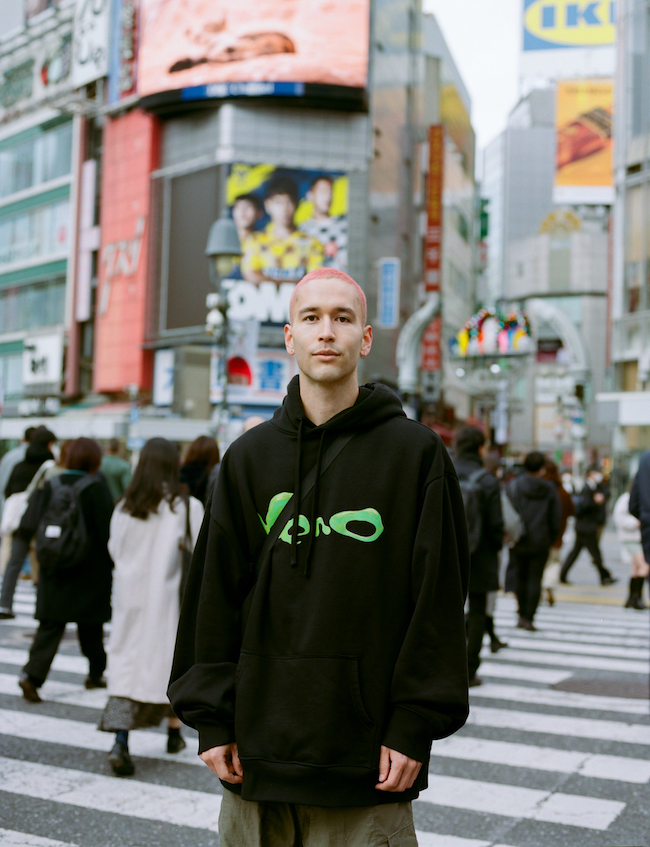
――“Xeno” is such a beautiful song and I think it speaks to a lot of people. The line “What am I made of that you’re afraid of / Am I contagious?” reminded me of a friend with mixed roots who told me that she felt she doesn’t belong anywhere.
rei brown: The contagious line is a deep loaded line for me. It was a weird thing, it was very relevant because I was writing it during COVID. People were saying, “You must have COVID because you’re Asian.” But then also, growing up, there was a period where these religious people who knew I was queer and knew someone else was queer, and they didn’t want you to know about each other. They essentially separated us. And that also felt like we’re contagious or we’re sick. We needed to be quarantined from each other. So the whole contagious line is actually there’s so much of how that has affected me, too, in such a weird, f**ked up kind of way.
――How was it like for you to write such a personal song?
rei brown: It was almost like therapy first, it wasn’t for anyone, it was for myself. So I don’t think I was critiquing my own work too hard. I was more like, this is how I feel, this is how I remember these things. It is such a deep personal song, but when I played my New York headline show, the crowd was screaming the chorus with me. And I started to cry because something so deep and personal to me had affected them, too, and they had connected with it. I just felt so fulfilled and happy that you had meant something to someone else. Also, the song is literally called “Xeno” like “other,” but I was in a room with people and I felt connected with it with everyone. It has brought us all together in this room and we were all chanting this chorus together is the irony of like, we were different but now we’re all here together and we feel safe, and we have something to connect with each other.
――Your music is very cinematic in a way that I can imagine a scene listening to each song. What were some of the inspirations when you were writing songs for this album?
rei brown: I watched a lot of “X-Files” growing up, and I also watched “Yonimo kimyona monogatari” [Tales of the Unusual/Japanese TV series] and “Twilight Zone” or “Black Mirror” as well. So I think a lot about the album is very Black Mirror-esque, where each episode is kind of different but still in that universe of some dystopian or futuristic themes floating around. There were so many different inspirations that it’s hard to remember, but definitely sci-fi influences.
――How would you describe this album in your own words?
rei brown: I don’t know if this makes sense to other people, but at one point, I really enjoyed describing it as a season of “X-Files” or “Black Mirror” but the soundtrack was done by collaboration with Britney Spears, Backstreet Boys, and Limp Bizkit together, like somehow the three of them collaborated on the soundtrack [laughs.]
――You collaborated with Joji again on “Thinking Bout You.” How did it come about?
rei brown: I had “Thinking Bout You” for a really long time, maybe 2018 or 2019. But when I had worked on “Normal People” with him, I was at the studio with him and I was just playing some things I had been working on recently. And I played “Thinking Bout You” for him and he was instantly like, “I want to be on that one.”
――It’s amazing that you guys grew up together and you both are so talented. Did you grow up playing music together?
rei brown: Yeah, we did. We would make beats together in GarageBand. Or on weekends or during the summer break when we were really bored, we would just make stupid songs and send them to each other just to communicate even. In high school, middle school, we were always making music together.
――You also collaborated with keshi again on the album, and you opened for his tour in the states and Asia including two shows in Tokyo. How did you feel playing in your home country?
rei brown: My whole time in Japan was so beautiful and amazing. Because I had been away for so long and I never come back to Japan in a professional/business way. I was physically coming home, but to come home as rei brown and feel support from press or the fans, and even the photographers or people that wanted to work with me. People in Japan care about me or are proud that me, a Japanese person is doing this. That’s really heartwarming and also different from some of the bitter, bad memories I had of feeling like I didn’t belong. And this in some ways is like people saying, “Welcome home” and “We’re proud of you.” That made me feel that I need to come back. Because there’s now this foundation in Japan and I really want to grow that. It’s like a community and I just want to dig my claws deeper into Japan and connect with people and work with more people in Japan, because I love Japan. And I think there’s so much talent in Japan.
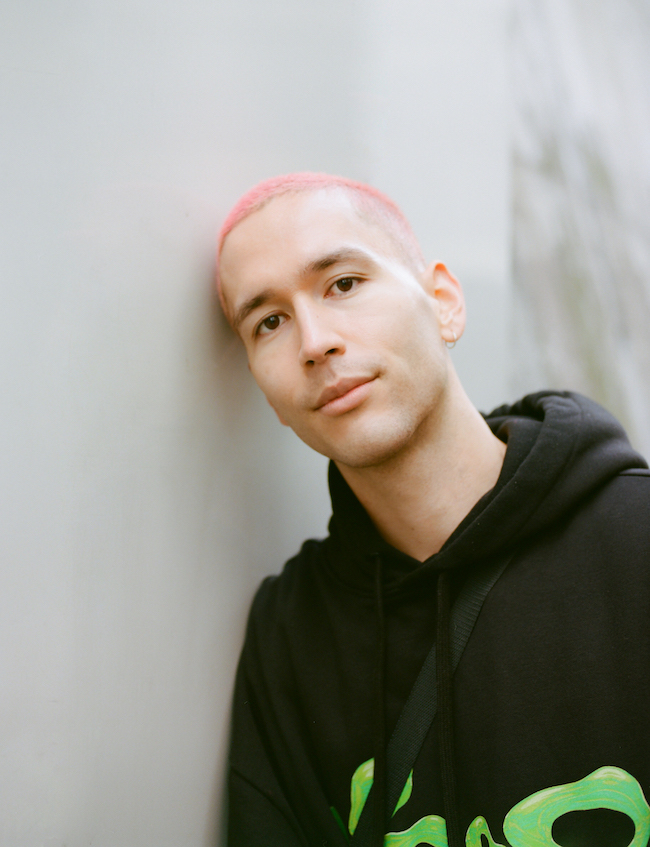
――Also, it’s nice to see many Asian musicians in the spotlight now, including you, Joji, keshi, Japanese Breakfast, Mitski and so on. It seems like there is a community within the music scene. How do you feel about that?
rei brown: It’s confusing or different for me, because I grew up in Japan. I grew up with Asian music, and even for music abroad, I went through a really big phase of Justin Nozuka who is a Canadian artist but he’s half Japanese. So even my perception of foreign music was sometimes like Justin Nozuka. So I didn’t grow up with the same longing of like, I wish I could see more successful Asian artists. I grew up seeing successful artists all over Japan. And when I got to America, I think 88rising was already a thing and you were starting to see more Asian people getting out there. And when I was in college, there was Toro y Moi and TOKiMONSTA… I think just the genres that I was into, there were always talented people of color, because I wasn’t super into mainstream music anyways. But I do think we have made progress looking back. Growing up, when I would visit America as a child, there wasn’t a lot of famous Asian artists out there. So we have progressed a lot and it’s really cool to see so many good people of color that are getting the spotlight now.
――Not just music, but what else inspires you?
Rei Brown: I’m always inspired by fashion in a lot of different ways. At first, it was kind of a body dysmorphia thing that growing up, I didn’t feel like clothes really fit me. And then I bought a pair of Yohji Yamamoto pants and it made me feel like I fit in these pants and I look good. They made me want to invest and research fashion brands, and that got me really deep into patterns and silhouettes and stuff. And then the more I got into, like sustainability and thinking about the Earth, I got into work wear and clothes that are made sustainable or that are durable and last a long time. That led to thrifting and upcycling and stuff. It’s also related to the album, too, in some ways, because I feel like a lot of 90s stuff is coming back. And a lot of the music was influenced by 90s and sci-fi, but I feel like 90s fashion or y2k stuff are coming back and a lot of that really inspires me.
I also think I’m inspired by literally everything, movies, movie soundtracks, art, architecture… I didn’t realize but I grew up around a lot of buildings by Tadao Ando. I grew up around a lot of crazy architecture, and how you engage with physical space is architecture and urban design. So like music and movie, I feel like I was blessed with good food and good architecture in Kobe, and it’s just made me have not objectively good taste, but I think a lot of people put thought into things, and in turn made me put a lot of thought into the things that I create.
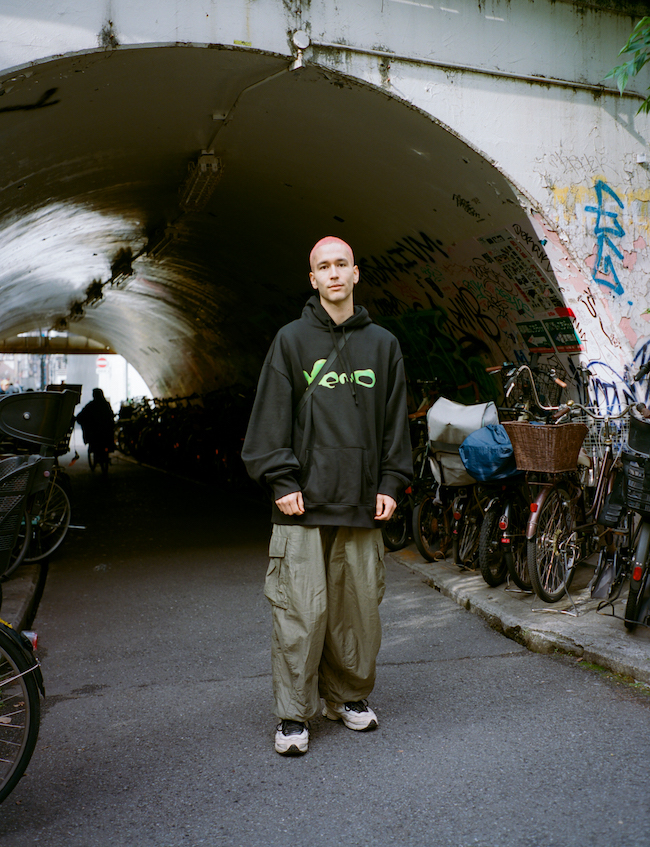
――We’re so excited for your future. What’s next for you?
rei brown: I might actually go on tour with keshi again for his Europe tour which will be in four weeks [laughs.] And then I have the Joji shows at Madison Square Garden and the Forum in LA. I’m going to be in LA in early January and work with Lecx Stacy and some other producers. So I’m hoping to have a lot of new music by the time I play Madison Square Garden.
――I’m sure your Japanese fans are excited for you.
rei brown: I love them and I’m so happy that they’re listening to my music. I hope I can connect more with them and come back to play more shows, and build that community in Japan.
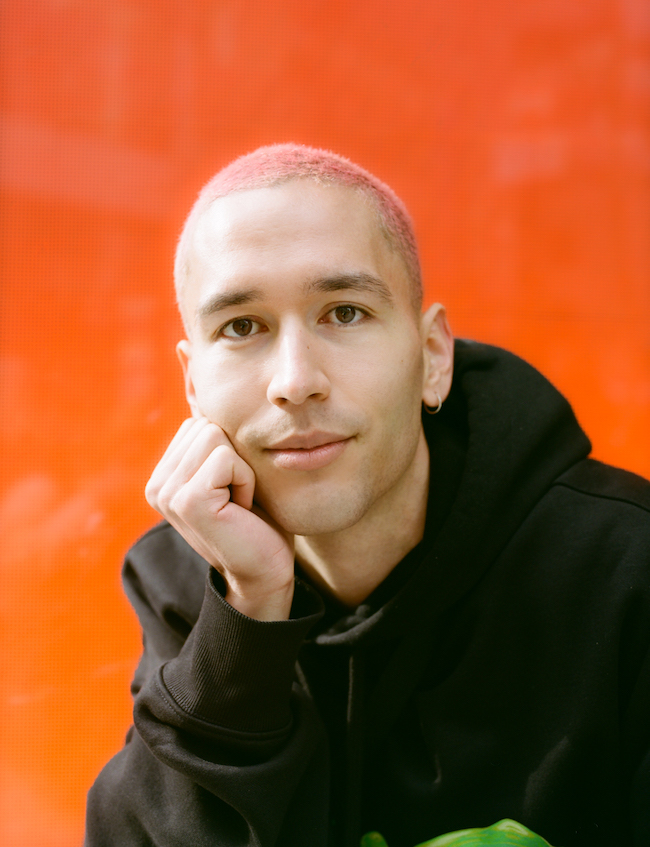
photography Marisa Suda (IG)
text nao machida
